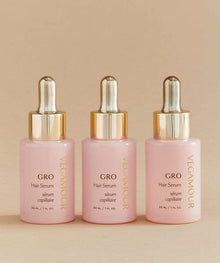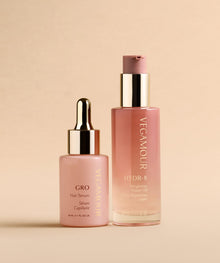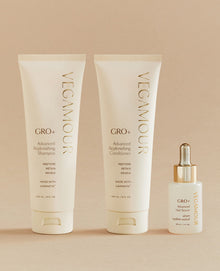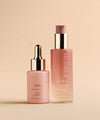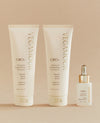“Prejuvenation”: Why Now Is the Best Time to Preserve Your Hair Health
Dr. Neera Nathan, MD, MSHS, is a board-certified dermatologist and VEGAMOUR expert. Every month, the Harvard-trained doctor shares the science behind and potential solutions to topics such as hair loss, hair growth, scalp care and graying. Read all of Dr. Nathan's articles here.
As a dermatologist, I am often asked when it is too early to start thinking about cosmetic procedures to combat the signs of an aging face, including loss of volume, wrinkles, rough texture or uneven skin tone.
A well-respected colleague authored a paper in a scientific journal about this exact topic nearly 10 years ago. The conclusion was that it is almost never too early to take action to help slow or prevent signs of aging. In fact, avid photoprotection (like avoiding peak sunlight and wearing broad-brimmed hats) combined with good skincare practices and regular, expert-performed procedures can significantly diminish or almost prevent some of the telltale signs of an aged face. Similarly, taking action now may also preserve the health of your hair.
What Is Prejuvenation?
Prejuvenation is preventative medicine for skin health, and many dermatologists recommend starting certain medications or procedures at a younger age to slow the signs of aging years before they become apparent in the mirror.
And even though the term “prejuvenation” was originally coined in relation to skin aging, it begs the question: If an ounce of prevention is worth a pound of cure, why aren’t we talking more about prevention, or prejuvenation, in relationship to our hair? Hair is a skin appendage and is cut from the same cloth as the skin during development, so it’s no surprise that hair is susceptible to age-related changes, too.
How Hair Health Declines
Studies suggest that hair density and hair strand diameter begin a downward decline after puberty. Like fine lines or deep wrinkles, these changes become more noticeable with age, and with time, become harder to correct or reduce. While a reduction in hair thickness or coverage may be slower in some and faster in others, eventually, almost everyone will lose hair or experience unwanted changes to their hair appearance.
Think back to your hair during your childhood or pre-teenage years. You likely remember it as being thicker, shinier and healthier. Hair is generally at its peak density during that time, but for many, it was also free of harsh chemicals or processing treatments, hair dyes or styling practices — all things that can erode hair structure and diminish hair luster.
Hair weathering, or external damage from the root to the tip of hair strands, can be caused by excessive heat styling, permanent hair coloring or relaxing treatments. It is generally more apparent at the tip of the hair than the root, as the tip is the oldest part of the hair strand.
How Prejuvenation Can Help Preserve Hair Health
While it may not be possible to completely revert to the hair of our youth, we can prioritize maintaining and preserving the hair density and quality that we have now to diminish hair loss or unwanted changes down the road.
Hair quality is a vital component to the appearance of healthy hair, so strategies to strengthen the shaft and prevent breakage are an important component of prejuvenation. To help keep hair full and in the growth phase for as long as possible, it is also important to maintain good sleep hygiene, a balanced diet and to pursue strategies to mitigate stress (like aerobic exercise or mediation practices).
When you do see hair loss, do not delay evaluation or treatment. By the time you notice hair loss, it is likely that the process is already well on its way. For certain types of hair loss, experts have noted that some can lose more than 50% of their hair density before their hair loss becomes obvious to them. Further, the thickness of each hair strand may begin to vary during the early stages, suggesting that occult signs of hair loss occur long before it becomes noticeable to you or others. If your hair loss is severe, seek care from a board-certified dermatologist.
From Dr. Nathan: What Your Hair Can Tell You About Your Overall Health
